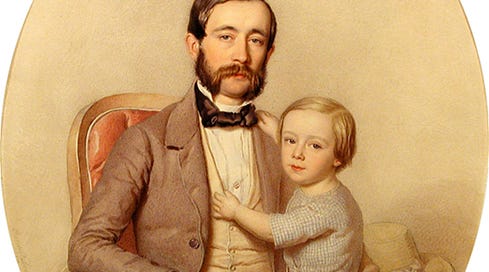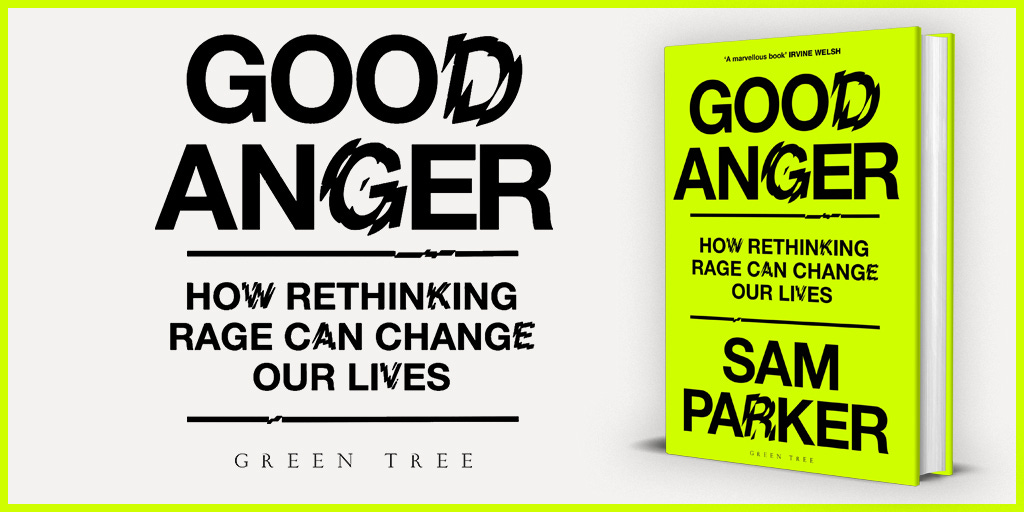Do babies look like their fathers so we don’t abandon them?
On Paternity Uncertainty Hypothesis and other evolutionary bedtime stories
There’s a picture of my daughter I can’t stop looking at and laughing. She is twelve weeks old, fresh from a bath, wrapped in a towel in her mother’s arms. The look on her face is one of shock and indignation. I like to think it’s because she loves being in the water; in reality, she’s probably just a bit cold.
The reason it makes me laugh is that her face is my face. It’s the exact look of mock horror I must have pulled in a hundred photographs, from high school through to university. A put-upon expression I’ve long hammed up for humour is, by a quirk of DNA, also her way of saying “What the hell is going on here!?”
Ever since the day she was born people have been telling us how much Olive looks like me. This, of course, feels rather unfortunate for her – not to mention a little unfair on her mother, who did all the hard work in getting her here. Hopefully in time the genetic seesaw will tip in the other direction and she’ll resemble Mum more than her Dad. But for now, according to friends, aunts, and at least one perfect stranger in a toilet queue at our local cafe, she is my doppelganger.
All of which felt rather lovely: until someone said this may just be an effort on behalf of biology to make sure I don’t kill her.
Paternity Uncertainty Hypothesis is a concept from evolutionary science and psychology that suggests men may be less certain than women about their biological relationship to offspring. This stems from a pretty key biological difference: maternity is always certain (a woman knows she gave birth to a child), while paternity is not guaranteed (without genetic testing). The consequences of paternity uncertainty can mean less emotional investment in a child’s welfare, leading to the theory nature may have developed a cunning solution: make newborns resemble the father more than the mother in order to convince Dad to stick around. In modern societies, where parents traditionally form exclusive couples, this kind of reassurance is less necessary. But back in ancient hunter-gatherer societies, where resources were dangerously scarce, children of disputed lineage could, in extreme circumstances, lead to rejection – or worse.
You can always rely on evolutionary psychology to take the romance out of things. Thankfully, in this case, it appears to be untrue. An analysis of eight separate academic papers published between 1982 and 2020 shows no consistent evidence that babies resemble their fathers any more than their mothers. Happily enough, it appears to be an even spread. Olive just got unlucky.
Not so fast, though. The idea may not have a biological basis, but it does appear to have a social and perhaps psychological one. In 2000, researchers conducted an experiment at three hospitals in southern Georgia, USA. They asked 160 new mothers whether they thought their newborns resembled themselves or the baby’s father. Of the respondents, a whopping 87.5% picked the dads (this figure increased if the father was present). But when photos of the same babies, taken on the same day, were shown to a panel of neutral observers, the results came back almost even, with a slight favourability towards the mothers. The implication of the study and others like it conducted around the world is that mothers may intentionally or subconsciously emphasise paternal resemblance even when it’s not true, possibly as a social strategy to secure the father’s emotional investment.
It can be hard to find feel-good stories about fatherhood. The idea of the hands-on, emotionally-attuned dad is often thought to only be as old as the 1970s, when women joined the workplace in greater numbers (making childcare, at least in theory, a shared enterprise) and psychologists began to stress the importance of paternal attention in child development. Historians like Dr Laura King have gamely challenged this idea, arguing that Victorian fathers were more loving and involved than popular imagination assumes. But for today’s Dads who want to be an equal, active, caring presence in their children’s lives – rather than slightly aloof authoritarians and providers – there is vague sense of being historical pioneers without much of a roadmap to follow.
Does looking at Olive’s face and seeing myself – something I’m fairly sure happens to be true, rather than a conspiracy to stop me leaving her under a tree somewhere – make me feel more invested in finding the path? I struggle to believe I’d love her any less without the resemblance, however much it makes me laugh. In fact, in a clip I saw recently, a father discussed how bonding with his child felt more difficult because they resembled him so much. It invoked in him complicated feelings of self-loathing he’d never addressed (an example of something psychologists call ‘projected self-image’) which he had to work hard to untangle from the experience of becoming a parent. As an emotional experience, fatherhood is far more complex than looking back at hunter-gatherers would lead us to believe.
My book Good Anger: how rethinking rage can changes our lives can be pre-ordered at Amazon or Waterstones.








Great piece. I’ve always thought this false resemblance was a cultural adaptation to coax fathers into providing.